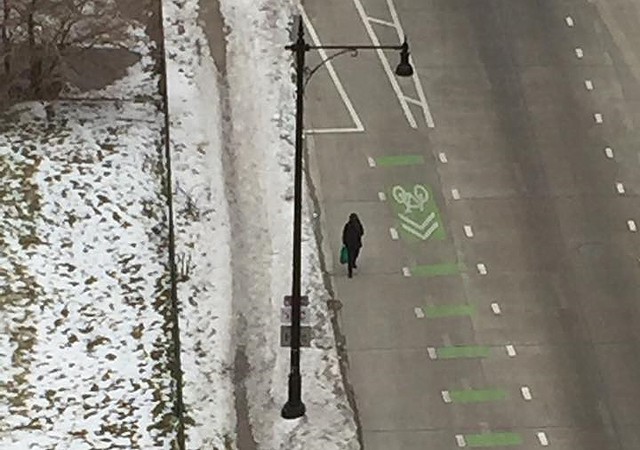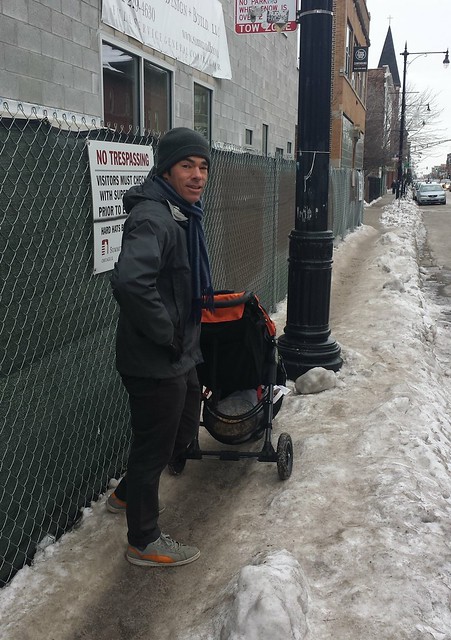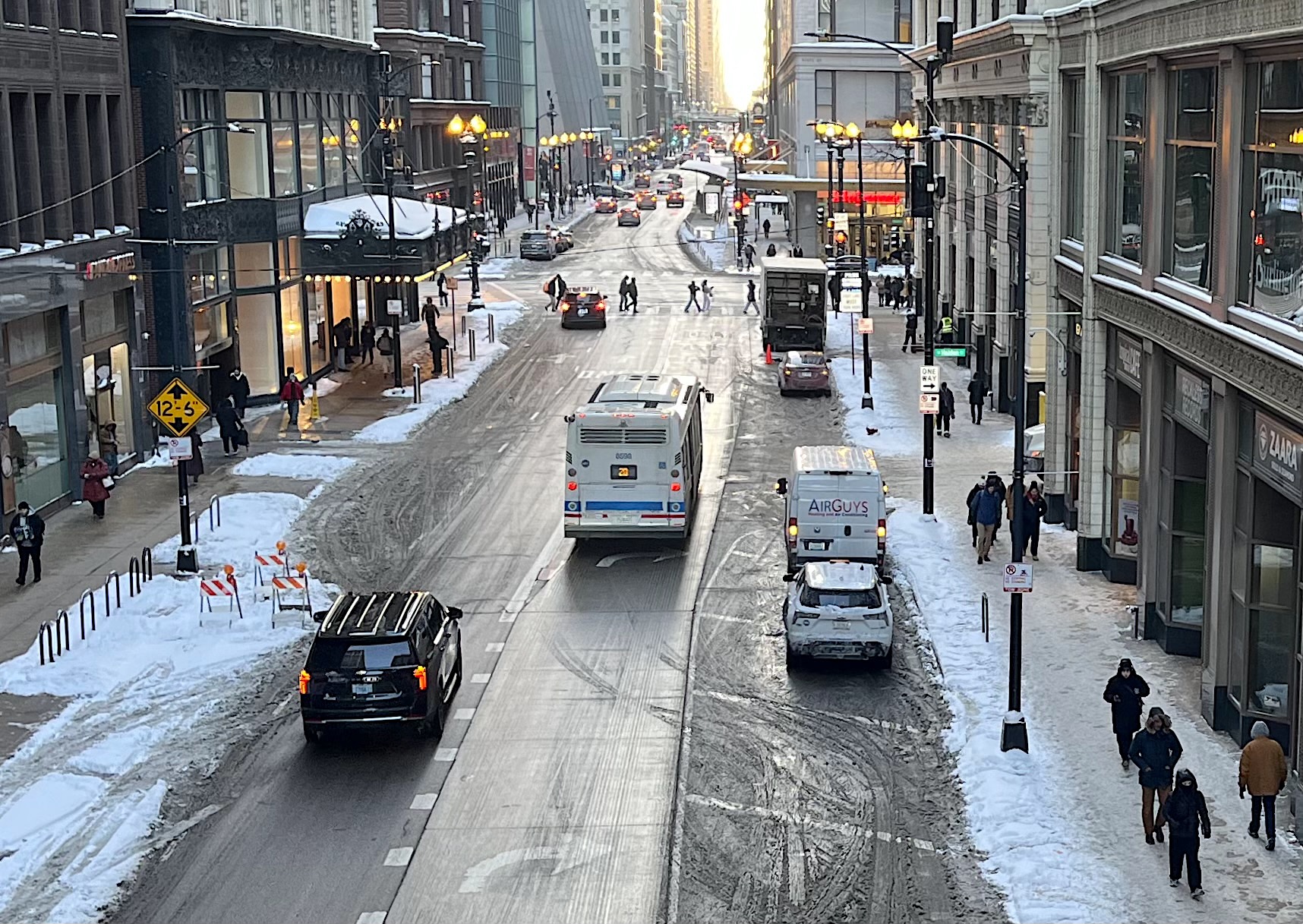
[The Chicago Reader recently launched a new weekly transportation column written by Streetsblog Chicago editor John Greenfield. This partnership will allow Streetsblog to extend the reach of our livable streets advocacy. We’ll be syndicating a portion of the column on the day it comes out online; you can read the remainder on the Reader’s website or in print. The paper hits the streets on Thursdays.]
Despite the current deep-freeze, we've had a remarkably mild—some would say anemic—winter so far. (Thanks, climate change.) Still, there have already been a couple of nasty snow and sleet storms, and for days afterward, you didn't have to look hard to find unshoveled sidewalks and impassible bike lanes.
Last week, for example, a stretch of the narrow sidewalk along North Avenue near Leavitt Street in Wicker Park was coated with crunchy snow and ice. That made it tough going for a father pushing his baby in a stroller.
While snowy and icy walkways are aggravating, they can also be a major barrier and hazard, especially for people with disabilities, seniors, and families with small children. Nearly 27 percent of patients admitted to three Buffalo, New York hospitals one winter were injured on icy surfaces, according to one study.
The city of Chicago is usually aggressive about fining people who don't comply with local laws. So it's a mystery why the Chicago Department of Transportation, which is responsible for enforcing the snow removal ordinance, doesn't write more tickets to shoveling scofflaws.
Last winter, a challenging season that included our city's fifth-heaviest recorded snowfall, CDOT wrote only 226 citations for failure to shovel. Meanwhile, Evanston, with about 1/36th the population of Chicago, issued 53 tickets for noncompliance, according to Evanston city staffer Carl Caneva. That's more than eight times CDOT's ticketing rate.
Moreover, Evanston has a very sensible approach to maintaining the public way. After issuing warnings to those who don't shovel, the city hires a contractor to do the work. The offender is invoiced an average of $190 for the service, which becomes a $230 property lien if the bill isn't paid. Other suburbs like Forest Park, Wilmette, Winnetka, and Glencoe clear all public sidewalks for residents.

In Chicago, however, shoveling sidewalks for pedestrians continues to be a much lower priority for the city than plowing roadways for drivers. Ever since Michael Bilandic lost reelection following theGreat Blizzard of 1979, local mayors have generally been fastidious about keeping streets clear of snow, and the Department of Streets and Sanitation often salts the roads if there's even a rumor of a storm.
City Hall did take a step in the right direction last fall by passing a new ordinance that hiked the fines for failure to shovel from the previous $25-$100 range to $50-$500. The law also clarifies that a five-foot-wide path must be cleared, and corner properties must clear the wheelchair ramps leading to crosswalks.
"For people who use wheelchairs or other assistive devices, winter can be a difficult time," says Gary Arnold, a spokesman for Access Living, which advocates for people with disabilities in Chicago. "Curb cuts are often a problem area because accumulation from snow plows can wind up blocking them. We're thrilled that the city is making an effort to address this."
The new legislation also lays out the required timeframe for clearance: snow that falls between 7 AM and 7 PM must be cleared by 10 PM, while snow that falls overnight needs to be removed by 10 AM the next morning.
The ordinance also specifies that snow can't be dumped in the street, including curbside protected bike lanes, which are useless when filled with slush or ice. In addition, it stipulates that shoveled snow may not block building entrances, bus stops, train stations, bike racks, or Divvy stations.
You might guess that all these new rules would lead to a blizzard of ticketing—but you'd be wrong. A CDOT summary of the ordinance prior to its passage stated, "There are no current plans to increase enforcement."





